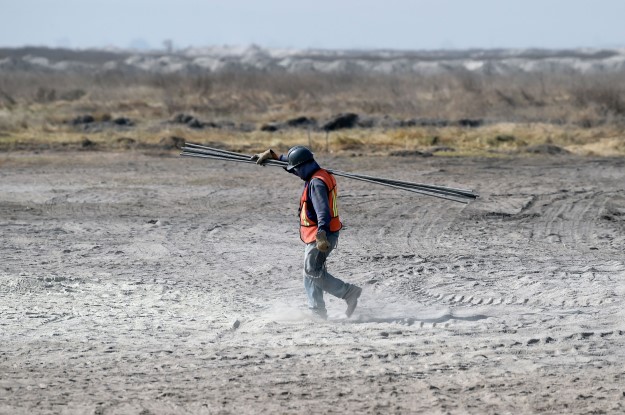Mexico’s reliance on deficit spending to fund environmental, social and income redistribution programs is a rising concern for its long-term fiscal situation. This is a challenge compounded by its historic reliance on declining oil tax revenue and the need for a structural fiscal reform.
Without it, federal government debt will increase and future generations of Mexicans will be the ones to pay for it.
Mexico is heavily reliant on outside sources of funding to sustain its environmental and social programs. For example, since 2010, the Mexican government has received $4.3 billion in loans from the Inter-American Development Bank (IDB) and the World Bank (WB) to fund environmental programs related to the COP-16 climate change agenda. Goals include public transport emission reductions, forest preservation and increased use of renewable energy. In January 2011, the IDB granted the last of these loans—$600 million to improve the sewage pipes of 20,000 schools and to expand drinking water availability in rural areas.
In addition, during 2010, Mexico borrowed $2 billion from the WB to fund education programs and the expansion of Seguro Popular, a federal health program focused on the uninsured, low-income population. The Mexican government also borrowed $2 billion from the WB and the IDB to fund Oportunidades, a program that assists 25 million low-income people with conditional cash-transfers to promote school attendance and medical checkups.
But why has the Mexican government relied on overseas funding for these important programs? The answer: tax revenue cannot cover these expenditures. The government relies on oil revenue from the state-owned company Petroleos Mexicanos (PEMEX), which has seen its revenue decline due to a drying up of the Cantarell oil field. In total, in 2010, oil extraction was 14 percent below 2000 levels—half a million barrels less.
Meanwhile, the federal government’s non-oil tax revenue has yet to compensate for this shortfall. Continued exemptions and loopholes continue to drastically reduce income and consumption tax revenue.
For instance, in Mexico the value-added tax (VAT) revenue (3.7 percent of GDP), is below that of countries with lower GDP per capita such as Bolivia (5.6 percent) and Colombia (6.3 percent). The Mexican VAT rate is 16 percent, but food and medicines are exempt. This makes the VAT progressive, as 44 percent of the bottom two income-quintiles’ consumption is on food, whereas the top income-quintile allocates only 15 percent on food.
This redistributive policy represents significant revenue losses. In 2010, the exemption represented a tax expenditure of $10 billion (1.1 percent of GDP).
Increased social spending, decreased oil revenues and the lack of tax reform have left the Mexican government with debt as the only short-term alternative to fill the revenue gap. Last year, the Mexican government took out $9.4 billion in loans (0.84 percent of GDP) from the WB and the IDB. From 2000 to 2010, the debt to GDP ratio has almost doubled from 22 percent to 41 percent of GDP. While this ratio is lower than other OECD members—the rate is 58.9 percent in the U.S. and 76.5 percent in the United Kingdom—debt growth (43 percent in real terms since 2006) is increasing the pressure for structural tax reform.
One solution is to increase domestic sources of revenue. This has been tried with little success. In 2009, President Felipe Calderón’s proposal to partially remove the zero-rating on food and medicines was rejected by a Congress fearing the regressive effects of this reform. Despite the setback, this tax reform is still being considered because of the potential tax revenue that it would generate. For instance, in 2010 the revenue forgone due to the VAT’s exemption of food was more than the combined amount of IDB and WB loans. In other words, without the zero VAT rate on food, the federal government would not need to look overseas for funding its environmental and income redistribution expenditures.
In the absence of tax reform the government will continue increasing its debt. This means that Mexicans are borrowing from future generations to cover their expenses today. This policy is sustainable as long as new generations create additional resources to pay off the debt. But without loans generating additional revenue, the current policy will not work.
In the case of COP-16 environmental programs, it could be argued that future generations should share the burden of more sustainable environmental policies. But the same cannot be said for debt-financed income redistribution. Instead, the current policy creates a trade-off between income redistribution today (rich vs. poor) and inter-generational income redistribution (current vs. future generations).
The extent of this trade-off is not exactly clear. However what is apparent is that the rejection of a tax reform for the sake of the poor today may increase the tax burden of the poor tomorrow.






